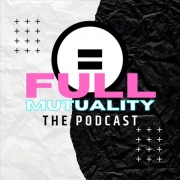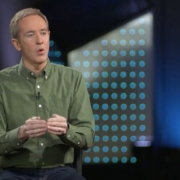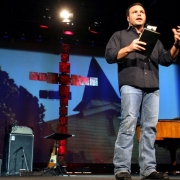Russell Moore and Mike Cosper almost get there: A conversation on theology and anger
This article originally appeared on December 30, 2022 at Baptist News Global.
At the turning of the year, religion writers and pundits reflect on the stories and conversations that shaped us and look forward to the conversations ahead. So far, Baptist News Global has shared a piece about how content creators shaped these conversations across a variety of platforms, as well as another piece about how one writer experienced religious celebrations throughout the year and articles on favorite things, on the year’s top 10 analysis pieces and most-read opinion pieces.
 Last week, Christianity Today offered a podcast conversation between host Mike Cosper and Editor in Chief Russell Moore, in which they reflected on the conversations of 2022 and shared some desires for conversations of 2023. The ways Christian media outlets frame theological narratives are quite revealing. And the conversation between Cosper and Moore is a microcosm that encapsulates how closely many evangelicals come to the heart of the conversation without being willing to go far enough.
Last week, Christianity Today offered a podcast conversation between host Mike Cosper and Editor in Chief Russell Moore, in which they reflected on the conversations of 2022 and shared some desires for conversations of 2023. The ways Christian media outlets frame theological narratives are quite revealing. And the conversation between Cosper and Moore is a microcosm that encapsulates how closely many evangelicals come to the heart of the conversation without being willing to go far enough.
Our year of collective anger
Cosper and Moore begin their conversation by referencing an article in the New York Times that frames 2022 as “The Year We Lost It.” In this piece, Todd Kashdan says our regular reaction of anger “suggests that there’s a societal fascination — equal parts envious and despising — with unfettered expressions of rage.”
Moore suggests there is a “sense of powerlessness in the culture right now of people who just feel as though there is no option but to freak out. … There’s a great deal of fear and I think a great deal of self-protection. … We seem to be kind of stuck in the dark.”
It’s interesting to note the unnamed hierarchies in their language. Envy is a discontentment or a resentment of others who are perceived to have acquired or achieved a higher status than you have, while despising looks down on those perceived as below you. Powerlessness felt by people who feel fear and a need to self-protect based on having no options is the experience of those on the bottom of hierarchical power structures. If these people had power to have other options, they would feel more freedom in their pursuit of happiness.
Emperors aren’t stuck. Those at the bottom of hierarchies with no power are stuck. And so, a major part of our conversation needs to be about the societal and institutional power structures that control and limit others into feeling powerless in life.
Anger as a secondary emotion
Later in the conversation, they discuss how anger can be expressed in healthy and legitimate ways. But Cosper explains that as a general reaction: “In psychology, they often talk about anger as a secondary emotion. And it’s an emotion that feels safe as compared to expressing things like sadness, depression, disappointment, grief.”

Mike Cosper
Cosper is correct in framing anger as a secondary emotion. Often, conservative evangelicals set up a false dichotomy where “God is love, but God is also holy and angry” as if love and anger are side by side. A more consistent psychological and theological understanding of love and anger would say because God is love, God gets angry when those whom God loves are harmed. To see anger as a primary character trait of God alongside love would be a denial of the idea that “his anger lasts only a moment, but his favor lasts a lifetime.”
Regarding social issues of hierarchical power, it is important to examine how our political, economic and religious institutions all have created power dynamics based on gender, race, class and sexual orientation. Because we love women, non-white people, poor people and LGBTQ people, it is legitimate to be angry when they are oppressed in systems set up by straight white wealthy men. But while our anger is legitimate, it needs to be held within a more holistic emotional context of sorrow and grief.
The contrast between endless anger and creative grief
Cosper names many of the causes for anger or grief we feel: “You think about all the loss with this COVID season. Everybody knows people who’ve died. Oftentimes you’re seeing the polarization get so extreme. Family relationships are broken up. Church communities are broken up. The learning loss with your kids. The loss of milestones of families who didn’t get to have graduations, didn’t get to have their first dance, the list could go on and on. And to me, it strikes me that we have this culture of pent-up grief. But because America doesn’t do grief well, we look for these more sort of aggressive kinds of expressions of emotion that often do turn up in anger, oftentimes in American culture it turns into innovation, it turns into creativity.”
While Cosper and Moore have been naming specific causes of anger and grief to this point, they have yet to analyze what theologies of anger and grief tell us about God. But Cosper indicates there is a difference between aggressive anger that leads to nowhere but the perpetuation of itself and anger amidst grief that leads to innovation and creativity.
But what does that look like when we consider the wrath of God?








Leave a Reply
Want to join the discussion?Feel free to contribute!